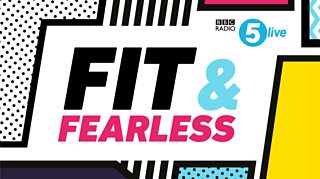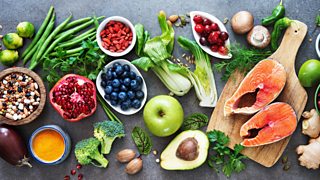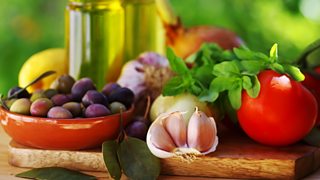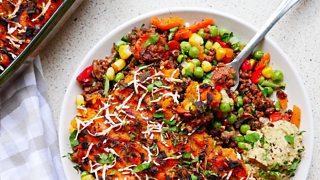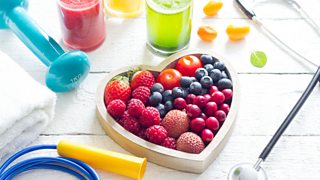Fit & Fearless: Healthy Eating for a Healthy Planet
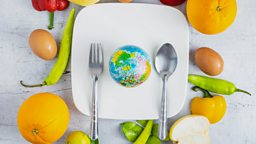
We often talk about how to have a healthy diet. What about the health of our planet?
Fit & Fearless podcasters Zanna, Tally and Vicky spoke to Marco Springmann from Oxford University, who led a study into how our diets can impact the climate.
They chatted all things sustainable eating - what is it? Why is it important? And should we all be doing it?
Click here to listen to the whole episode about sustainable diets here.
What’s the link between our dietary choices and the environment?
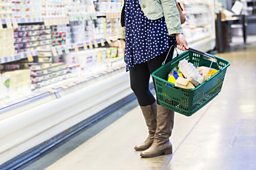
Marcus says:
"We looked at what measures are needed to stay within environmental limits and within planetary boundaries, such as; technological changes, improvements in farm management, reductions in food loss and waste and dietary changes.
"For climate change, there is no way to avoid dangerous levels of climate change without dietary change.
"So we would always exceed the environmental limit for food-related greenhouse gas emissions if you don't change our diet."
Why does animal agriculture create carbon emissions?
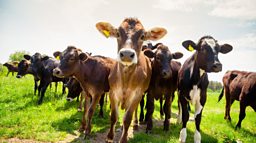
"If you look at meat... it generates greenhouse gas emissions through various sources.
"So ruminant animals like beef, lamb, cows and sheep, they digest food in their multiple stomachs... and produce a very potent greenhouse gas called methane that they burp up every once in a while. So that is one of the biggest contributors to food related emissions.
"The other big contributor to emissions is nitrous oxide from fertilising crops.
"More than a third of all grain production is actually fed to animals, and we need quite a bit of food for animals to grow. So ruminant animals have a big direct impact, and also an indirect impact through the feed.
"If you change your diet and eat less animal products, you would dramatically reduce your personal carbon footprint and other resource demands.
"If more people did that then the impact could be really quite dramatic."
Would eating vegan food help?
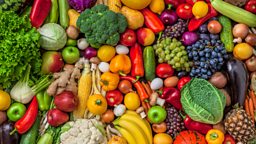
"We estimated what could be the impact if everybody in the world went vegan, as a really extreme case.
"You could save the amount of emissions that if you put all the emissions together, it would be second largest emitter in the world of all greenhouse gas emissions. So that's really massive.
"In terms of land use, the crop land you would save would be equivalent of the size of Greenland - and the pastures you could save would be the size of the continent of Africa.
"At the same time you would save water resources and not apply that much fertiliser... and if you put all that together, that would be the complete water extraction and fertiliser application of all high income countries [put] together."
If I eat less meat, where will I get my protein from?
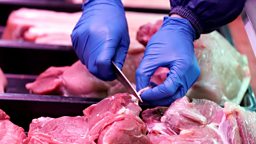
"At the moment we vastly over-consume both animal products and protein.
"We probably need around 50 grams [a day], but we consume about 80 grams.
"Major protein sources usually give you about 10 grams or so, so you can easily cut out a couple of those.
"At the moment those animal products provide quite a lot of protein, but you can easily switch those - for example replace your poultry consumption with two servings of nuts and seeds.
"There is protein in almost everything, so worrying about protein is overblown. Instead of worrying about protein we should worry more about the general diet composition."
Is it more environmentally friendly to switch from meat to fish?
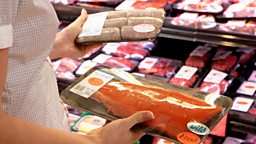
"The impact of eating fish [on the environment] can vary quite a bit.
"Some fish, particularly big ones which need to feed on other small fish, or fish that you catch by throwing a deep sea net and trawling, they can have as big of an impact as beef. So people really need to be careful."
"If you eat small pelagic fish [fish that live near the surface, such as mackrel] or mussels, then you can reduce your environmental impact by quite a bit."
Aren't almond milk and avocados bad for the environment too?
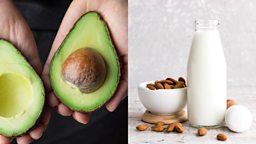
"If you look at the by-product impact... almond milk has half of the water footprint that conventional milk has.
"Lots of those milk replacements also have vastly reduced greenhouse gas emissions.
"It's concentrated in a certain area that doesn't have good regulation of water extraction, but you could easily grow almonds in other places... Almonds are not bad crops or bad nuts, it's just a shortage and a lack of farming regulation.
"It's the same with avocados. The demand has skyrocketed so much and that creates a little bit of a shortage in the market... so there might be local stress points but in the medium term, with that strong demand, you can imagine other production centres will come up and produce avocados.
"It's not the food as such, but we see the market changing."
I still want to eat animal products. Is there a compromise?
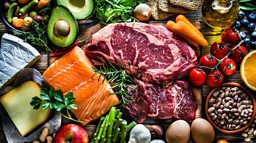
"We came up with something we called a 'planetary health diet' which is the minimal diet which is both healthy and sustainable enough to stay within environmental limits.
"It's basically a flexitarian diet, so:
- Not more than one serving of red meat (beef, pork or lamb) a week
- Not more than two servings of poultry a week
- Not more than two servings of fish per week
- The other two days you should be vegetarian or vegan
- Limit your dairy intake to one glass of milk, or one slice of cheese, per day."
Can you eat sustainable food on a budget?
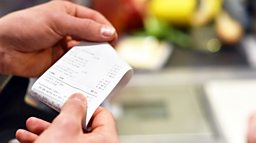
"Absolutely. New analysis we did shows that a flexitarian diet could be up to a quarter cheaper in high income countries, and still cheaper in middle income countries.
"Lots of times people who say to themselves 'I want to be healthier and more sustainable,' they suddenly also change where they shop, so they buy fancier products... I would say if you want to keep prices down, get creative in the kitchen and cook and you will be surprised how much money you can save."
Listen to the podcast to find out more:
• Is organic food is better for the environment?
• Does the food we buy impact rainforest destruction?
• Is it better to eat locally sourced beef, or eat imported raspberries?
• Does making an individual change really have any bigger impact?
• Tally, Vicky and Zanna debate what they would change to help the planet
-
![]()
Fit & Fearless: Healthy Eating for a Healthy Planet
Zanna, Tally and Vicky are joined by Marco Springmann of Oxford University to discuss sustainable eating. What is it? Why is it important? And why we should all be doing it!
More from Fit & Fearless
-
![]()
Your Nutrition Questions Answered
The Fit & Fearless podcasters Vic, Tally and Zanna put listeners' questions to nutritionist Pixie Turner.
-
![]()
How to get more plants onto your plate - the Mediterranean way
Doctors Kitchen author Dr Rupy Aujla explains how to get more greens into your diet.
-
![]()
Nutritionist Rhiannon Lambert shares her meal plan - to help you become fit and fearless!
-
![]()
Dr Rangan Chatterjee shares his tips on how to make tiny changes to boost your health.
